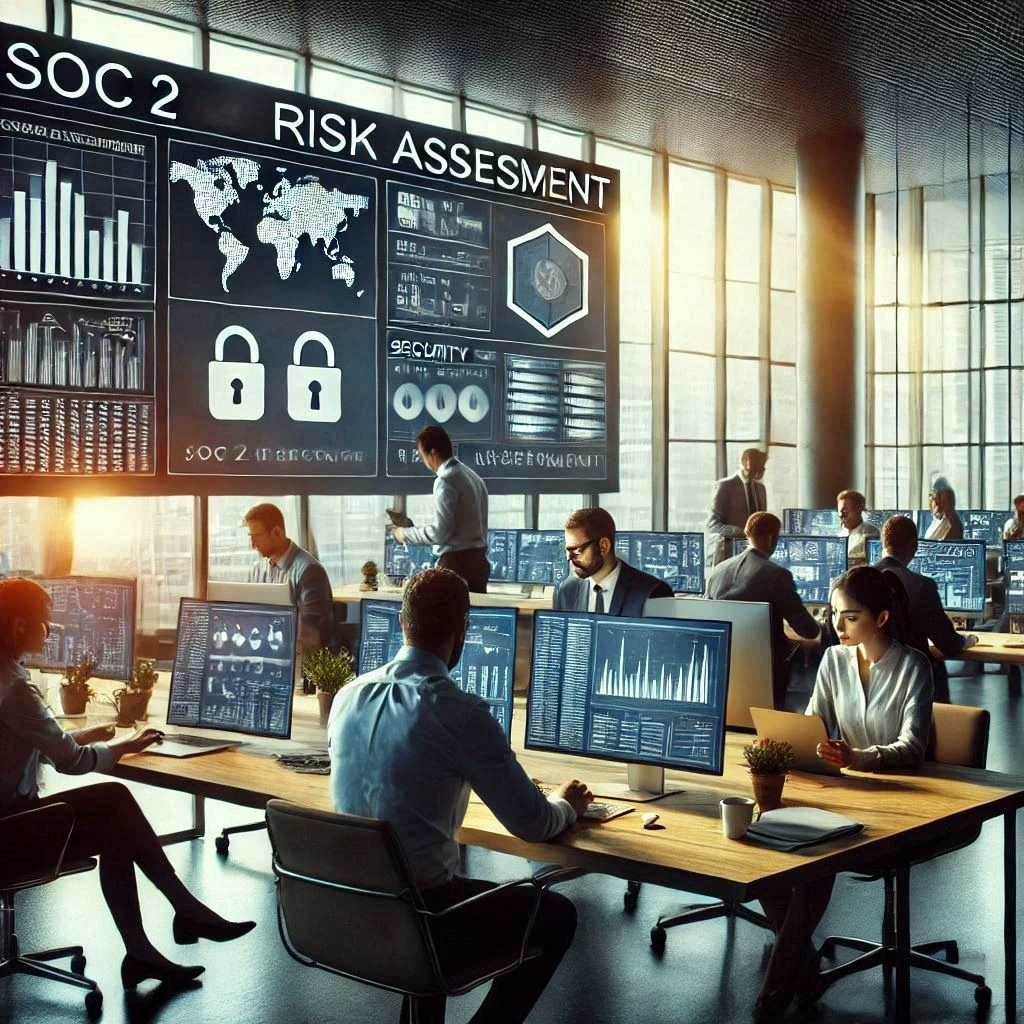In the realm of internal audit, audit procurement refers to the systematic process of evaluating and overseeing the procurement activities within an organization. This function is crucial as it ensures that procurement practices align with organizational policies, regulatory requirements, and ethical standards. By scrutinizing procurement processes, auditors can identify inefficiencies, mitigate risks, and enhance overall accountability. The significance of audit procurement lies in its ability to foster trust and integrity in the acquisition of goods and services, ultimately contributing to the organization’s financial health and reputation.
Blockchain technology emerges as a transformative force in this context, characterized by its decentralized and immutable ledger system. At its core, blockchain operates on principles of transparency, security, and traceability. Each transaction recorded on a blockchain is visible to all participants in the network, making it nearly impossible to alter or delete past records without consensus. This inherent transparency can significantly enhance the audit procurement process by providing real-time visibility into procurement activities, thereby reducing the likelihood of fraud and corruption [1][2].
The importance of transparency in procurement processes cannot be overstated. It serves as a foundation for accountability, enabling stakeholders to track the flow of resources and ensure compliance with established guidelines. In an environment where procurement corruption is a concern, blockchain’s ability to provide a clear and verifiable trail of transactions can help mitigate risks associated with backdoor dealings and under-the-table agreements [6]. By integrating blockchain technology into procurement audits, organizations can not only streamline their processes but also build a culture of trust and integrity that is essential for sustainable business practices.
Understanding Blockchain Technology
Blockchain technology is increasingly recognized for its potential to enhance transparency in various sectors, including audit procurement. This section provides a foundational understanding of blockchain, its characteristics, and its implications for procurement audits.
How Blockchain Works
- Distributed Ledger: At its core, blockchain operates as a distributed ledger technology (DLT). This means that the data is stored across a network of computers (nodes) rather than being held in a single central location. Each participant in the network has access to the entire database, which ensures that all transactions are visible and verifiable by all parties involved. This transparency is crucial for audit procurement, as it allows for real-time monitoring of transactions and activities, reducing the risk of fraud and errors [2].
- Immutability: One of the defining features of blockchain is its immutability. Once a transaction is recorded on the blockchain, it cannot be altered or deleted without the consensus of the network. This characteristic provides a tamper-resistant record of all transactions, which is essential for maintaining the integrity of audit trails in procurement processes. The ability to trace every transaction back to its origin enhances accountability and trust among stakeholders [1].
- Consensus Mechanisms: Blockchain employs various consensus mechanisms to validate transactions before they are added to the ledger. These mechanisms, such as Proof of Work (PoW) and Proof of Stake (PoS), ensure that all participants agree on the validity of transactions, further enhancing the reliability of the data recorded. This collective agreement is vital in procurement audits, as it minimizes disputes and discrepancies in transaction records [13].
Types of Blockchain
- Public Blockchain: This type of blockchain is open to anyone and allows for complete transparency. All transactions are visible to the public, making it ideal for applications where trust and transparency are paramount. However, public blockchains can be slower and less efficient due to the need for widespread consensus [2].
- Private Blockchain: In contrast, private blockchains are restricted to a specific group of participants. Access is controlled, and only authorized users can view and validate transactions. This type of blockchain is often used by organizations that require confidentiality and faster transaction speeds, making it suitable for internal procurement audits.
- Hybrid Blockchain: Hybrid blockchains combine elements of both public and private blockchains. They allow for controlled access while still providing some level of transparency. This flexibility can be beneficial for organizations that need to balance privacy with the need for auditability in procurement processes.
Smart Contracts
- Overview: Smart contracts are self-executing contracts with the terms of the agreement directly written into code. They automatically enforce and execute contractual obligations when predetermined conditions are met. This automation reduces the need for intermediaries, streamlining procurement processes and minimizing the potential for human error [2].
- Role in Automating Processes: In the context of audit procurement, smart contracts can facilitate various functions, such as automating payment processes, ensuring compliance with procurement policies, and triggering audits based on specific criteria. By embedding audit requirements within smart contracts, organizations can enhance transparency and accountability, as all actions taken under the contract are recorded on the blockchain and are easily auditable [6].
Blockchain technology offers significant advantages for enhancing transparency in audit procurement. By understanding its fundamental characteristics, including distributed ledgers, immutability, consensus mechanisms, and the role of smart contracts, technology auditors and procurement professionals can leverage this innovative technology to improve their processes and ensure greater accountability.
Challenges in Traditional Procurement Audits
In the realm of procurement audits, traditional methods often face significant limitations that hinder transparency and efficiency. Understanding these challenges is crucial for technology auditors and procurement professionals who are exploring innovative solutions like blockchain technology. Here are some key challenges associated with traditional procurement audits:
- Lack of Transparency and Traceability: Traditional procurement processes frequently suffer from a lack of visibility into transactions. This opacity can lead to poor decision-making and inefficiencies, as stakeholders may not have real-time access to critical data regarding orders, supplier performance, and spending patterns. Without transparent processes, it becomes difficult to monitor compliance and assess the effectiveness of procurement strategies [5][10].
- Issues with Data Integrity and Potential for Fraud: Data integrity is a significant concern in traditional procurement audits. Inconsistent data entry procedures and formats can result in inaccuracies, making it challenging to trust the information being analyzed. This lack of reliability opens the door to potential fraud, as discrepancies in data can be exploited by malicious actors. Ensuring that procurement data is standardized and securely managed is essential to mitigate these risks [3][9].
- Inefficiencies Due to Manual Processes and Lengthy Reconciliation Times: Many traditional procurement audits rely on manual processes, which can be time-consuming and prone to human error. Lengthy reconciliation times can delay the audit process, making it difficult to respond swiftly to issues as they arise. The reliance on outdated systems and practices can hinder the overall effectiveness of procurement audits, leading to increased costs and reduced accountability [2][11].
By identifying these challenges, procurement professionals and technology auditors can better appreciate the potential of blockchain technology to enhance transparency and efficiency in procurement audits. Blockchain’s inherent characteristics, such as immutability and decentralized record-keeping, offer promising solutions to address these traditional limitations.
How Blockchain Enhances Transparency in Procurement Audits
Blockchain technology is poised to transform the landscape of procurement audits by significantly enhancing transparency. This transformation is particularly relevant for technology auditors and procurement professionals who are seeking innovative solutions to improve their processes. Here are the key ways in which blockchain can enhance transparency in audit procurement:
- Real-time Visibility into Procurement Transactions: Blockchain provides a transparent and immutable ledger that allows all stakeholders, including buyers, suppliers, and auditors, to access real-time data on procurement transactions. This visibility ensures that everyone involved can track the status of orders, payments, and contract compliance, thereby fostering accountability and trust among parties involved in the procurement process [1][2].
- Immutability of Records: One of the most significant advantages of blockchain is its ability to create tamper-proof records. Once a transaction is recorded on the blockchain, it cannot be altered or deleted, which greatly reduces the risk of fraud and manipulation. This immutability ensures that all procurement activities are accurately documented, providing a reliable audit trail that auditors can trust [3].
- Automation of Compliance Checks through Smart Contracts: Blockchain technology enables the use of smart contracts—self-executing contracts with the terms of the agreement directly written into code. These smart contracts can automate compliance checks by ensuring that all conditions are met before a transaction is executed. This not only streamlines the procurement process but also enhances transparency by providing clear, verifiable conditions that must be satisfied, reducing the potential for disputes and misunderstandings [5][6].
- Decentralization of Data: By decentralizing data storage, blockchain reduces reliance on a single source of truth. This means that no single entity has control over the entire procurement process, which mitigates the risk of data manipulation and enhances the integrity of the information. Multiple stakeholders can access and verify the same data, leading to improved collaboration and trust among parties involved in procurement audits [7][8].
The integration of blockchain technology into procurement audits offers a robust framework for enhancing transparency. By providing real-time visibility, ensuring the immutability of records, automating compliance checks, and decentralizing data, blockchain can significantly improve the integrity and efficiency of procurement processes. This advancement not only benefits auditors but also strengthens the overall procurement ecosystem, fostering greater trust and collaboration among all stakeholders involved.
Potential Risks and Limitations of Blockchain in Procurement Audits
While blockchain technology holds significant promise for enhancing transparency in procurement audits, it is essential to recognize the potential risks and limitations that may arise during its implementation. Below are key points that highlight these challenges:
- Technical Challenges and the Need for Skilled Professionals: Implementing blockchain solutions in procurement audits requires a high level of technical expertise. The complexity of blockchain algorithms and protocols necessitates skilled professionals who can effectively operate and maintain the technology. Without adequate technical knowledge, organizations may struggle to leverage blockchain’s full potential, leading to ineffective implementations and potential failures in achieving transparency [10][12].
- Regulatory and Compliance Issues: The integration of blockchain technology into procurement processes raises various regulatory and compliance challenges. Different jurisdictions may have varying regulations regarding data storage, transaction verification, and the use of cryptocurrencies. Organizations must navigate these complexities to ensure compliance with local laws and regulations, which can be a daunting task. Failure to comply can result in legal repercussions and hinder the adoption of blockchain solutions in procurement audits [7].
- Concerns About Data Privacy and Security: Although blockchain is often touted for its security features, it is not without risks. Data privacy concerns arise from the immutable nature of blockchain, where once information is recorded, it cannot be altered or deleted. This raises questions about how sensitive procurement data is managed and protected. Additionally, while blockchain can enhance the integrity of data, vulnerabilities in the underlying software or protocols can expose organizations to security threats, potentially compromising the very transparency that blockchain aims to provide [9][12].
While blockchain technology can significantly improve transparency in procurement audits, organizations must carefully consider these potential risks and limitations. Addressing technical challenges, ensuring regulatory compliance, and safeguarding data privacy and security are crucial steps in successfully implementing blockchain solutions in procurement audits.
Future Trends: The Evolution of Audit Procurement with Blockchain
The integration of blockchain technology into audit procurement processes is poised to revolutionize the landscape of transparency and efficiency. As organizations increasingly recognize the benefits of this technology, several key trends and predictions emerge regarding its adoption and impact on procurement audits.
Predictions on the Adoption Rate of Blockchain in Procurement Processes
- Growing Acceptance: The adoption of blockchain in procurement audits is expected to accelerate as organizations seek to enhance transparency and mitigate risks associated with fraud and counterfeiting. Companies like Walmart and IBM have already demonstrated successful implementations, paving the way for broader acceptance across various industries [5].
- Increased Demand for Transparency: As stakeholders demand greater accountability and traceability in supply chains, the use of blockchain will likely become a standard practice in procurement audits. This shift will be driven by the technology’s ability to provide an immutable record of transactions, ensuring data integrity and authenticity.
- Regulatory Support: As regulatory frameworks evolve to accommodate blockchain technology, organizations may find it easier to adopt these solutions. This regulatory backing will further encourage procurement professionals to integrate blockchain into their audit processes [6].
Potential Innovations and Advancements in Blockchain Technology
- Real-Time Auditing Capabilities: Future advancements in blockchain technology may enable real-time auditing, allowing auditors to access up-to-date information and conduct continuous audits rather than relying on periodic reviews. This shift will enhance the overall efficiency and effectiveness of the audit process.
- Enhanced Data Transparency: Innovations in blockchain could lead to improved data transparency, making it easier for auditors to verify the authenticity of transactions and the origins of products. This capability will significantly reduce the risk of fraud and errors in financial records [14].
- Integration with Other Technologies: The future may see blockchain being integrated with other emerging technologies, such as artificial intelligence and machine learning, to further enhance audit processes. This combination could lead to more sophisticated fraud detection mechanisms and improved decision-making capabilities for auditors [6].
The Role of Technology Auditors in Guiding Organizations Through This Transformation
- Advisory Role: Technology auditors will play a crucial role in guiding organizations through the adoption of blockchain in procurement audits. Their expertise will be essential in assessing the risks and benefits associated with this technology, ensuring that organizations make informed decisions.
- Training and Education: As blockchain technology evolves, auditors will need to stay updated on the latest developments and best practices. This will require ongoing training and education to equip them with the necessary skills to navigate the complexities of blockchain in procurement audits [14].
- Facilitating Change Management: Technology auditors will also be instrumental in facilitating change management within organizations. They will help stakeholders understand the implications of adopting blockchain technology and support the transition to new audit methodologies that leverage this innovative solution [15].
The future of audit procurement is set to be transformed by blockchain technology, offering enhanced transparency, efficiency, and security. As organizations embrace this change, technology auditors will be vital in guiding them through the complexities of implementation and ensuring that the benefits of blockchain are fully realized.
Conclusion
In summary, the integration of blockchain technology into procurement audits presents a transformative opportunity to enhance transparency and accountability within the auditing process. The key benefits of blockchain for procurement audits include:
- Enhanced Transparency: Blockchain’s immutable ledger provides a clear and tamper-proof record of all transactions, ensuring that every step in the procurement process is visible and verifiable. This transparency helps to prevent corruption and unethical practices, fostering trust among stakeholders [2].
- Improved Traceability: With blockchain, auditors can easily trace the origin and journey of goods and services, which is crucial for verifying compliance with regulations and standards. This capability significantly reduces the risk of fraud and errors in procurement processes [4][12].
- Streamlined Processes: The automation of procurement audits through smart contracts can lead to more efficient operations, reducing the time and resources required for audits. This efficiency allows auditors to focus on more strategic tasks rather than getting bogged down in manual checks [1].
As technology auditors and procurement professionals, it is essential to explore blockchain solutions actively. By embracing this innovative technology, you can not only enhance the integrity of your procurement audits but also position your organization at the forefront of industry best practices.
Furthermore, staying informed about emerging technologies in the audit space is crucial. The rapid evolution of blockchain and other digital tools will continue to shape the landscape of procurement audits, and being proactive in understanding these changes will empower you to leverage them effectively for improved outcomes in your auditing processes.
In conclusion, the adoption of blockchain technology in procurement audits is not just a trend; it is a necessary step towards achieving greater transparency, efficiency, and trust in the procurement ecosystem.
Find out more about Shaun Stoltz https://www.shaunstoltz.com/about/
This post was written by an AI and reviewed/edited by a human.



